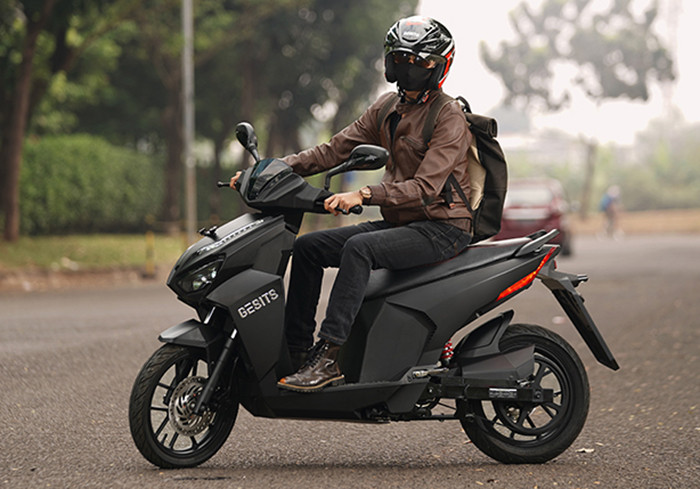Ryan Erik King, writing for Jalopnik, is reporting on Indonesia’s push towards reducing its carbon footprint and driving the Electric Vehicle (EV) agenda by offering a subsidy on electric motorcycle purchases.
Southeast Asia’s largest country, like many other countries, aims to electrify as many vehicles as possible. The general goal is to move as much energy consumption from fossil fuels to the country’s electricity grid, which will concurrently transition to sustainable power sources.
For Southeast Asia, a focus on motorcycles would have a greater impact on vehicle emissions than cars. About 85 percent of households in Indonesia own a motorcycle. For comparison, ownership of motorcycles in the United States is less than ten percent.
King reports that an Indonesian government minister confirmed to Reuters that the government is finalizing a plan to subsidize IDR 6.5-million (approx. USD 413) per purchase of an electric motorcycle.
Officials are contemplating a similar subsidy for electric cars. The country’s government has a goal of 1.2-million electric bike purchases by 2024. The Indonesian government is also aiming for 35,000-electric car sales in the same time span.
CleanTechnica reports that Indonesia is aiming to reduce its carbon emissions by 29-percent by 2030 and be carbon neutral by 2060, says King. The Indonesian government feels that electrification, phasing out its fuel subsidy and investing in sustainable energy will help hit that target. The country already has a burgeoning domestic electric motorcycle industry with dozens of manufacturers. The government hopes to encourage local battery production and funding infrastructure project to increase the number of charging stations with the funds previously used for the fuel subsidy.
While demographics played a significant role, Indonesia’s motorcycle policy plans starkly contrast to the United States, where electric motorcycles were removed from the federal EV tax credit.
Source: Jalopnik. Image: Gesits


